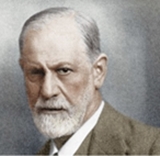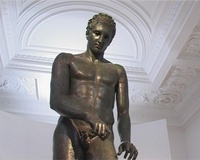Hrvatska je skoro potpuno izbrisala svoju veliku Islamsku ostavštinu
Page 1 of 1
 Hrvatska je skoro potpuno izbrisala svoju veliku Islamsku ostavštinu
Hrvatska je skoro potpuno izbrisala svoju veliku Islamsku ostavštinu
Croatia's Forgotten Muslim History

Abdullah Osmanoğlu - Turkey
Unfortunately nowadays within the border of Croatia this Ottoman heritage has been mostly erased. Abdullah Osmanoğlu wrote.
When said Hırvatistan, no one immediately thinks Islam; although it is same with Bosnia Herzegovina and Serbia in terms of the Ottoman heritage. Unfortunately nowadays within the border of Croatia this Ottoman heritage has been mostly erased. Recently a book named Traces of Ottoman Culture in Croatia, given remarkable information, has been published by Oğuz Aydemir and Andelko Vlasic. In this article, we have benefitted mostly from this precious book.
Ottoman Empire ruled three parts of the today's Crotia: Slavonia, Dalmatia, and Krajina. One should not confuse with Slavonia and Slovenia; Slavonia is the region in the northern border line with Bosnia, Slovenia is an independent state. Ottoman Empire began the wars of conquest with Slavonia and Karajna in 1520. Firstly the cities such as Slovonski Brod, Osijek were conquered. Between 1530 and 1600 Vukovar, Grojani, Kutjevo, Pozega, Cernik, Virotivica, Kostanica and many other cities started to be ruled by the Ottoman Empire.
Zagreb, today's capital of Crotia, was not attempted to capture because soldiers had most of the time fought with the Hungarian and German troops. And Zagreb is outside of this conquest line. However, in 1593 the Ottomans under the rule of Telli Hasan Pasha gained the lands until Sisak, which 40 km away to Zagreb. Regions in the Adriatic coasts, in the other part of the country, were also under the rule of the Ottoman Empire.
Ottoman pashas of Croatian origin
Beyond doubt, not all people of Croatia origin had not lived in the Kingdom of Croatia. Many Croatian people lived under the rule of Bosnia and Herzegovina and several Croatian young people got educated in the devshirmeh system of the Ottoman Empire. One of the first Ottoman pashas coming from Croatia is Hersekli Ahmed Pasha (Ahmed Pasha, son of the Herzog), who did not enroll truly in the devshirmeh system.
The first name of Ahmed Pasha was Stephan and his father was among the most wealthy men in Bosnia. He was sent to Istanbul due to diplomatic reasons and there he became Muslim. Then he got constantly promoted through the Ottoman state system and 5 times he became vizier of the Sultan. He was in charge in the times of Mehmet the Conquerer, Bayezid II, and Selim II.
Another important figure is Rustem Pasha, who becomes popular nowadays because of the TV series “Muhteşem Yüzyıl (The Magnificent Century)”. It is believed that Rustem Pasha (Opukovic) was born in Skradin and in his youth he was sent to Istanbul to be educated through devsirme system. He was one of the most powerful vizier in the times of Suleyman the Magnificent. Another interesting figure is Kuyucu Murad Pasha. As known, he is the vizier who quelled the Jelali revolts in Anatolia. (Dilaver Pasha is also considered as a Crotian stateman).
In the Ottoman navy there are many Croatian seamen. For instance, it is narrated that Piali Pasha was born in the Dalmatian region and of Croatian origin. He was received his formal education at the Enderun School (Ottoman Imperial Academy) and he had served as a Kapudan Pasha (grand admiral of the Ottoman fleet) for many years. Thanks to his efforts, all Mediterranean coasts were captured by the Turks. Another Dalmatian admiral is Silahdar Yusuf Pasha, originally his name is Yusuf Maskovic. He was also promoted as a Kapudan Pasha in the Ottoman fleet.
Croatian commanders and men of letters struggled with the Ottoman Empire
There have also been many Croatian commanders and men of letters who have struggled with the Ottomans in the past. Unfortunately, today in Croatia these names are known as heroes, although the names of the Pashas who served in the Ottoman State were erased from the memory. It is difficult to coincide with them even in the name of the streets. For example, Nicola Jurisic is the person who delayed the conquest of Vienna because Suleiman the Magnificent fought for 4 weeks at the Castle of Günz, located in the Hungarian territory today.
The castle was eventually surrendered by Suleiman the Magnificent, but he could go to Vienna too late and there was no enough time for the siege. Another commander, Stojan Jankovic, served in the army and participated in many attacks against the Ottomans on behalf of the Venetians. Ivan Gundulic became famous by the virtue of the strength of his poems. He wrote a book named “Osman”, in which he explains the struggle between Christianity and Islam, Europe and Turks. Gundulic blessed fighting against the Turks in this book.
A book called Osman has been received, and this book deals with Christianity and Islam, the struggle between Europe and Turks. Gundulic blessed fighting against the Turks. The situation of the Slavs fell is very saddening for him and feels an overwhelming longing for the pre-Ottoman times. Ivan Gundulic, still, is a name that is praised by today's Croatian and Serbian literary world.
The Ottoman remnants, which are mostly erased
The number of mosques, tekkes, schools and other artifacts on the territory of Croatia exceeds hundreds. Unfortunately, it is very difficult to determine their exact location as of today. Especially Evliya Çelebi gives detailed information about the cities there. To summarize, most of the cities in the region of Slavonia were constructed, ameliorated and Islamized by the Ottomans. Some of these mosques were first converted from the church, but the region was lost after 1683 and the Michael Church in Donji Miholjac was reconverted from a mosque.
It is noted that in Pojega, one of the largest Muslim settlements, there were nine mosques and a Khalwati dargah. Suleiman the Magnificent Mosque and Selim II Mosque were the most important mosques of that time, both converted from the church. Unfortunatelyit is very difficult to find Ottoman remnants in Pojega today. In the city of Kutjevo, where 75 percent of the population is Muslim, it is almost impossible to find any Muslim remnants.
Evliya Çelebi mentions in detail mosques and tekkes in Vukovar, Slavonski Brod, Gorajan, Valpovo, Cernik, and Dakovo. In Vukovar there was Hindi Baba’s Tekke. However, Evliya Çelebi was particularly impressed by the city of Osijek. Architecture of the city, the structure of the settlement and the famous bridge are praised in the book.He notes that there are 12 mosques in this beautiful city; however, today neither the Suleiman’s bridge nor the mosques remains in this Ottoman city next to the Drava river. (In fact, the highway route linking Belgrade to Zagreb goes through the cities constructed by the Ottomans.)
Many Croatian cities like Ilok, Virovitca, Orahovica, Petrinja, Gvozdansko, Kostajnica, Stulic, Licki Osik, Morcic, Perusic, Dalmatia, Vrana, Nadin, Zemunik, Bribir, Prolozac, Solin, Makarska, Opuzen, Vrgorac, Imotske, Igrane, and Dubrovnik have the Ottoman legacy. However, it is almost impossible to find Ottoman traces in them.
According to an interesting narration, Sheikh Ali Gaybi, who is in the tekke in the Gradishka district, felt that one day in the territory of Slavonia the Ottoman sovereignty would end and he shared this feeling with the people around him. Today there is no tekke in Gradishka within the territory of in northwestern Bosnia and Herzegovina, part of the Republika Srpska entity.
It is apparent that the siege of Vienna in 1683 is not only a failure but a great disaster that the Ottoman Empire lost most of its Western lands. The Muslim lands were lost as they were in Andalusia, and the remnants of Islam were erased from the memories. However, we should not forget to recite Fatiha for the souls of our martyrs who died in these lands…

Abdullah Osmanoğlu - Turkey
Unfortunately nowadays within the border of Croatia this Ottoman heritage has been mostly erased. Abdullah Osmanoğlu wrote.
When said Hırvatistan, no one immediately thinks Islam; although it is same with Bosnia Herzegovina and Serbia in terms of the Ottoman heritage. Unfortunately nowadays within the border of Croatia this Ottoman heritage has been mostly erased. Recently a book named Traces of Ottoman Culture in Croatia, given remarkable information, has been published by Oğuz Aydemir and Andelko Vlasic. In this article, we have benefitted mostly from this precious book.
Ottoman Empire ruled three parts of the today's Crotia: Slavonia, Dalmatia, and Krajina. One should not confuse with Slavonia and Slovenia; Slavonia is the region in the northern border line with Bosnia, Slovenia is an independent state. Ottoman Empire began the wars of conquest with Slavonia and Karajna in 1520. Firstly the cities such as Slovonski Brod, Osijek were conquered. Between 1530 and 1600 Vukovar, Grojani, Kutjevo, Pozega, Cernik, Virotivica, Kostanica and many other cities started to be ruled by the Ottoman Empire.
Zagreb, today's capital of Crotia, was not attempted to capture because soldiers had most of the time fought with the Hungarian and German troops. And Zagreb is outside of this conquest line. However, in 1593 the Ottomans under the rule of Telli Hasan Pasha gained the lands until Sisak, which 40 km away to Zagreb. Regions in the Adriatic coasts, in the other part of the country, were also under the rule of the Ottoman Empire.
Ottoman pashas of Croatian origin
Beyond doubt, not all people of Croatia origin had not lived in the Kingdom of Croatia. Many Croatian people lived under the rule of Bosnia and Herzegovina and several Croatian young people got educated in the devshirmeh system of the Ottoman Empire. One of the first Ottoman pashas coming from Croatia is Hersekli Ahmed Pasha (Ahmed Pasha, son of the Herzog), who did not enroll truly in the devshirmeh system.
The first name of Ahmed Pasha was Stephan and his father was among the most wealthy men in Bosnia. He was sent to Istanbul due to diplomatic reasons and there he became Muslim. Then he got constantly promoted through the Ottoman state system and 5 times he became vizier of the Sultan. He was in charge in the times of Mehmet the Conquerer, Bayezid II, and Selim II.
Another important figure is Rustem Pasha, who becomes popular nowadays because of the TV series “Muhteşem Yüzyıl (The Magnificent Century)”. It is believed that Rustem Pasha (Opukovic) was born in Skradin and in his youth he was sent to Istanbul to be educated through devsirme system. He was one of the most powerful vizier in the times of Suleyman the Magnificent. Another interesting figure is Kuyucu Murad Pasha. As known, he is the vizier who quelled the Jelali revolts in Anatolia. (Dilaver Pasha is also considered as a Crotian stateman).
In the Ottoman navy there are many Croatian seamen. For instance, it is narrated that Piali Pasha was born in the Dalmatian region and of Croatian origin. He was received his formal education at the Enderun School (Ottoman Imperial Academy) and he had served as a Kapudan Pasha (grand admiral of the Ottoman fleet) for many years. Thanks to his efforts, all Mediterranean coasts were captured by the Turks. Another Dalmatian admiral is Silahdar Yusuf Pasha, originally his name is Yusuf Maskovic. He was also promoted as a Kapudan Pasha in the Ottoman fleet.
Croatian commanders and men of letters struggled with the Ottoman Empire
There have also been many Croatian commanders and men of letters who have struggled with the Ottomans in the past. Unfortunately, today in Croatia these names are known as heroes, although the names of the Pashas who served in the Ottoman State were erased from the memory. It is difficult to coincide with them even in the name of the streets. For example, Nicola Jurisic is the person who delayed the conquest of Vienna because Suleiman the Magnificent fought for 4 weeks at the Castle of Günz, located in the Hungarian territory today.
The castle was eventually surrendered by Suleiman the Magnificent, but he could go to Vienna too late and there was no enough time for the siege. Another commander, Stojan Jankovic, served in the army and participated in many attacks against the Ottomans on behalf of the Venetians. Ivan Gundulic became famous by the virtue of the strength of his poems. He wrote a book named “Osman”, in which he explains the struggle between Christianity and Islam, Europe and Turks. Gundulic blessed fighting against the Turks in this book.
A book called Osman has been received, and this book deals with Christianity and Islam, the struggle between Europe and Turks. Gundulic blessed fighting against the Turks. The situation of the Slavs fell is very saddening for him and feels an overwhelming longing for the pre-Ottoman times. Ivan Gundulic, still, is a name that is praised by today's Croatian and Serbian literary world.
The Ottoman remnants, which are mostly erased
The number of mosques, tekkes, schools and other artifacts on the territory of Croatia exceeds hundreds. Unfortunately, it is very difficult to determine their exact location as of today. Especially Evliya Çelebi gives detailed information about the cities there. To summarize, most of the cities in the region of Slavonia were constructed, ameliorated and Islamized by the Ottomans. Some of these mosques were first converted from the church, but the region was lost after 1683 and the Michael Church in Donji Miholjac was reconverted from a mosque.
It is noted that in Pojega, one of the largest Muslim settlements, there were nine mosques and a Khalwati dargah. Suleiman the Magnificent Mosque and Selim II Mosque were the most important mosques of that time, both converted from the church. Unfortunatelyit is very difficult to find Ottoman remnants in Pojega today. In the city of Kutjevo, where 75 percent of the population is Muslim, it is almost impossible to find any Muslim remnants.
Evliya Çelebi mentions in detail mosques and tekkes in Vukovar, Slavonski Brod, Gorajan, Valpovo, Cernik, and Dakovo. In Vukovar there was Hindi Baba’s Tekke. However, Evliya Çelebi was particularly impressed by the city of Osijek. Architecture of the city, the structure of the settlement and the famous bridge are praised in the book.He notes that there are 12 mosques in this beautiful city; however, today neither the Suleiman’s bridge nor the mosques remains in this Ottoman city next to the Drava river. (In fact, the highway route linking Belgrade to Zagreb goes through the cities constructed by the Ottomans.)
Many Croatian cities like Ilok, Virovitca, Orahovica, Petrinja, Gvozdansko, Kostajnica, Stulic, Licki Osik, Morcic, Perusic, Dalmatia, Vrana, Nadin, Zemunik, Bribir, Prolozac, Solin, Makarska, Opuzen, Vrgorac, Imotske, Igrane, and Dubrovnik have the Ottoman legacy. However, it is almost impossible to find Ottoman traces in them.
According to an interesting narration, Sheikh Ali Gaybi, who is in the tekke in the Gradishka district, felt that one day in the territory of Slavonia the Ottoman sovereignty would end and he shared this feeling with the people around him. Today there is no tekke in Gradishka within the territory of in northwestern Bosnia and Herzegovina, part of the Republika Srpska entity.
It is apparent that the siege of Vienna in 1683 is not only a failure but a great disaster that the Ottoman Empire lost most of its Western lands. The Muslim lands were lost as they were in Andalusia, and the remnants of Islam were erased from the memories. However, we should not forget to recite Fatiha for the souls of our martyrs who died in these lands…

Hektorović- Posts : 26373
2018-04-10
 Re: Hrvatska je skoro potpuno izbrisala svoju veliku Islamsku ostavštinu
Re: Hrvatska je skoro potpuno izbrisala svoju veliku Islamsku ostavštinu
Pa eno ih tamo u Bosni. Poturice.

RayMabus- Posts : 184137
2014-04-11
 Re: Hrvatska je skoro potpuno izbrisala svoju veliku Islamsku ostavštinu
Re: Hrvatska je skoro potpuno izbrisala svoju veliku Islamsku ostavštinu
Hektorović wrote:Nowadays within the border of Croatia this Ottoman heritage has been mostly erased.

Još malo se trjebamo potruditi da bude "totally".
_________________


Regoč-

Posts : 35954
2015-08-21
Age : 106
Lokacija: : Doma
 Re: Hrvatska je skoro potpuno izbrisala svoju veliku Islamsku ostavštinu
Re: Hrvatska je skoro potpuno izbrisala svoju veliku Islamsku ostavštinu
Znaš li ti link postavit?Hektorović wrote:Croatia's Forgotten Muslim History
Za procjenu sadržaja je važno i i tko piše...

Eroo- Posts : 79081
2016-07-22
 Re: Hrvatska je skoro potpuno izbrisala svoju veliku Islamsku ostavštinu
Re: Hrvatska je skoro potpuno izbrisala svoju veliku Islamsku ostavštinu
Granica na Drini? Ma ajte molim vas...Regoč wrote:Hektorović wrote:Nowadays within the border of Croatia this Ottoman heritage has been mostly erased.
Još malo se trjebamo potruditi da bude "totally".
![:]](/users/3113/42/81/98/smiles/1823623843.gif)


Eroo- Posts : 79081
2016-07-22
 Re: Hrvatska je skoro potpuno izbrisala svoju veliku Islamsku ostavštinu
Re: Hrvatska je skoro potpuno izbrisala svoju veliku Islamsku ostavštinu
Pa piše tiEroo wrote:Znaš li ti link postavit?Hektorović wrote:Croatia's Forgotten Muslim History
Za procjenu sadržaja je važno i i tko piše...
Abdullah Osmanoğlu - Turkey

Hektorović- Posts : 26373
2018-04-10
 Re: Hrvatska je skoro potpuno izbrisala svoju veliku Islamsku ostavštinu
Re: Hrvatska je skoro potpuno izbrisala svoju veliku Islamsku ostavštinu
Možda hasanče obnovi neku ulicu, česmu, mostić....

epikur37- Posts : 45339
2015-08-06
 Re: Hrvatska je skoro potpuno izbrisala svoju veliku Islamsku ostavštinu
Re: Hrvatska je skoro potpuno izbrisala svoju veliku Islamsku ostavštinu
Euzubilahimina sheitani
_________________
.

Yehudim- Posts : 4913
2018-03-06
 Re: Hrvatska je skoro potpuno izbrisala svoju veliku Islamsku ostavštinu
Re: Hrvatska je skoro potpuno izbrisala svoju veliku Islamsku ostavštinu
To sam vidio, ali koji portal?Hektorović wrote:Pa piše tiEroo wrote:Znaš li ti link postavit?Hektorović wrote:Croatia's Forgotten Muslim History
Za procjenu sadržaja je važno i i tko piše...
Abdullah Osmanoğlu - Turkey
Zanima me i ostalo...

Eroo- Posts : 79081
2016-07-22
 Re: Hrvatska je skoro potpuno izbrisala svoju veliku Islamsku ostavštinu
Re: Hrvatska je skoro potpuno izbrisala svoju veliku Islamsku ostavštinu
Nista korisno nisu donijeli za ostaviti.

omni-

Posts : 7009
2014-04-12
Lokacija: : 9 krug
 Re: Hrvatska je skoro potpuno izbrisala svoju veliku Islamsku ostavštinu
Re: Hrvatska je skoro potpuno izbrisala svoju veliku Islamsku ostavštinu
Pa..kako ne..??..Mujice su ostavili...omni wrote:Nista korisno nisu donijeli za ostaviti.


Guest- Guest
 Re: Hrvatska je skoro potpuno izbrisala svoju veliku Islamsku ostavštinu
Re: Hrvatska je skoro potpuno izbrisala svoju veliku Islamsku ostavštinu
Kazem korisno. :D Jednom prilikom na Rodos naletim na dzamiju, dodjem do vrata a na vratima tabla o vremenima kada je dzamija otvorena i pise dole velikim slovima "NEVER".pismejker wrote:Pa..kako ne..??..Mujice su ostavili...omni wrote:Nista korisno nisu donijeli za ostaviti.


omni-

Posts : 7009
2014-04-12
Lokacija: : 9 krug

IL Risorto- Posts : 11215
2015-07-23
 Re: Hrvatska je skoro potpuno izbrisala svoju veliku Islamsku ostavštinu
Re: Hrvatska je skoro potpuno izbrisala svoju veliku Islamsku ostavštinu
trebalo je okaciti jos bar komad šlaninice uz natpis..ono osigurati vrata...omni wrote:Kazem korisno. :D Jednom prilikom na Rodos naletim na dzamiju, dodjem do vrata a na vratima tabla o vremenima kada je dzamija otvorena i pise dole velikim slovima "NEVER".pismejker wrote:Pa..kako ne..??..Mujice su ostavili...omni wrote:Nista korisno nisu donijeli za ostaviti.


Guest- Guest
 Re: Hrvatska je skoro potpuno izbrisala svoju veliku Islamsku ostavštinu
Re: Hrvatska je skoro potpuno izbrisala svoju veliku Islamsku ostavštinu
kako nisu..cevapi,sarmaomni wrote:Nista korisno nisu donijeli za ostaviti.


vuksadinare- Posts : 100329
2015-09-08
 Re: Hrvatska je skoro potpuno izbrisala svoju veliku Islamsku ostavštinu
Re: Hrvatska je skoro potpuno izbrisala svoju veliku Islamsku ostavštinu
Srećom pa kod mene nije bilo turske ostavštine. Ali zadnjih par godina poturice pokušavaju napraviti đamiju.
_________________


catabbath-

Posts : 12438
2015-08-22
 Re: Hrvatska je skoro potpuno izbrisala svoju veliku Islamsku ostavštinu
Re: Hrvatska je skoro potpuno izbrisala svoju veliku Islamsku ostavštinu
Nemoj tako ...pismejker wrote:Pa..kako ne..??..Mujice su ostavili...omni wrote:Nista korisno nisu donijeli za ostaviti.
A Mujaginice ... eh one su znacajan i pozitivan dio moje mladosti.

Ringo10- Posts : 21667
2015-09-24
 Re: Hrvatska je skoro potpuno izbrisala svoju veliku Islamsku ostavštinu
Re: Hrvatska je skoro potpuno izbrisala svoju veliku Islamsku ostavštinu
Mogli su poslati par kuhara a ne citavu hordu babuna.vuksadinare wrote:kako nisu..cevapi,sarmaomni wrote:Nista korisno nisu donijeli za ostaviti.

omni-

Posts : 7009
2014-04-12
Lokacija: : 9 krug
 Similar topics
Similar topics» Hrvatska oprez!Marie Le Pen lobira za Veliku Srbiju
» ''Hrvatska ima potpuno nesuvislog ministra obrane. Je li vam to normalno?''
» Kako je Hrvatska postala potpuno nebitna država
» Užas, Hrvatska podržava Ameriku, Veliku Britaniju i Francusku
» Cijela Hrvatska slavila veliku pobjedu nad Španjolcima.......nigdje Splita ?!?!?!
» ''Hrvatska ima potpuno nesuvislog ministra obrane. Je li vam to normalno?''
» Kako je Hrvatska postala potpuno nebitna država
» Užas, Hrvatska podržava Ameriku, Veliku Britaniju i Francusku
» Cijela Hrvatska slavila veliku pobjedu nad Španjolcima.......nigdje Splita ?!?!?!
Page 1 of 1
Permissions in this forum:
You cannot reply to topics in this forum
 Events
Events Latest images
Latest images
 by
by 
